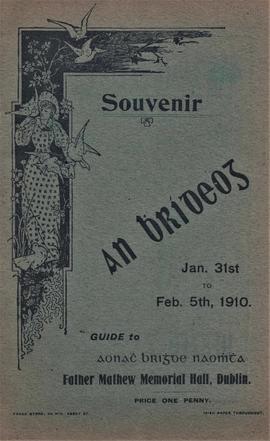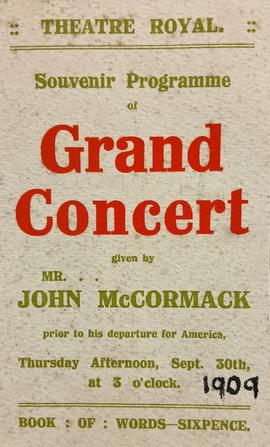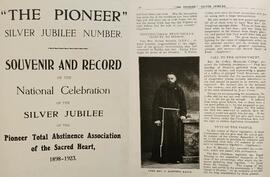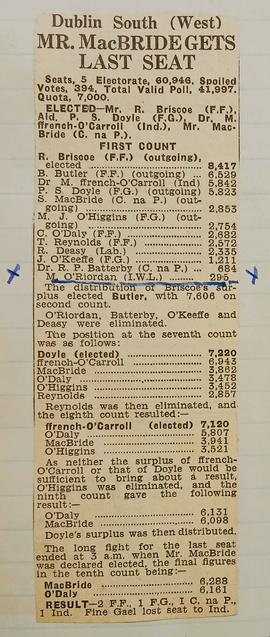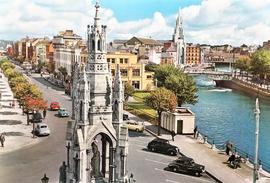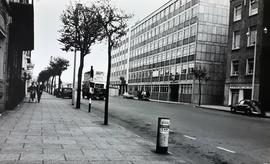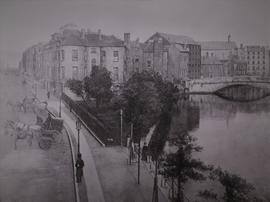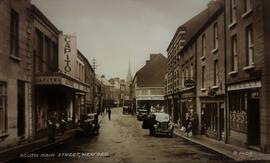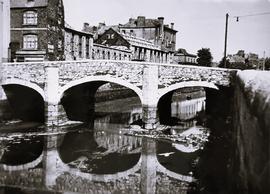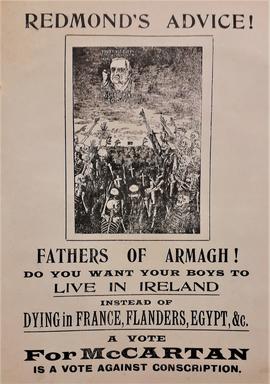Souvenir programme for St. Brigid’s Aonach held in Father Mathew Hall, Church Street, from 31 January to 5 February 1910. The object of the Fete was ‘to liquidate the heavy debt incurred by the recent extension of the Hall’. The debt of the Hall stood at £3,000. The Aonach consisted of various stands promoting goods of Irish manufacture.
The cover of a souvenir programme for a Grand Concert given by John McCormack at the Theatre Royal in Dublin prior to his departure for America.
A copy of a booklet titled ‘Pioneer / Souvenir and record of the national celebration of the silver jubilee of the Pioneer Total Abstinence Association of the Sacred Heart, 1898-1923 / Celebrated 8th June, 1924 / Silver jubilee number (Wexford: “The Free Press”, published for Kenny’s Advertising Agency, 1924). This commemorative publication includes a photographic print of Fr. Aloysius Travers OFM Cap. and references a short speech made by him at a temperance demonstration (page 18).
A clipping of a report on the final count in the south-west Dublin constituency in the 1951 general election. The final tally of Michael O’Riordan’s vote is highlighted in pen. The clipping is taken from the ‘Irish Independent’ (1 June 1951).
Colourised postcard print of South Mall, the National Monument and Holy Trinity Church in Cork. Printed description on the reverse reads ‘Father Mathew Memorial Church’.
An image of South Mall in Cork. The large office block (on the right) is the Irish Life building.
Copy photograph of South Mall in Cork showing the uncompleted Holy Trinity Church in the background (behind Parliament Bridge). The image is possibly a copy of an original glass plate held in the Lawrence Collection in the National Library of Ireland.
A postcard print of South Main Street in Wexford Town.
An image of South Gate Bridge in Cork. This triple-span limestone arch bridge was built in 1713.
An election handbill produced by Patrick McCartan (1878-1963), the Sinn Féin candidate, during the South Armagh by-election which was held on 2 February 1918. The handbill strongly attacks John Redmond’s call for Irish nationalists to support the British war effort.

